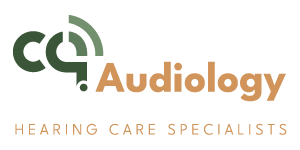Contact Us
We would love to speak with you.
Feel free to reach out using the below details.
Visit our main clinic
- T33 & 34A, City Centre Plaza, 24 Fitzroy Street, Rockhampton, QLD 4700
Get In Touch
- Phone: (07) 4848 6528
- Email: reception@cqaudiology.com.au
Trading Hours
- Mon-Fri 9:00AM - 5:00PM
- Sat 9:00AM - 12:00PM
Get a callback
Fill out the form below and we will contact you as soon as possible!
CQ Audiology Visiting Sites
BARCALDINE
Barcaldine 60 & Better Program
13 Willow Street
QLD 4725
BILOELA
Ace Medical Centre
48 Grevillea Street
QLD 4715
BLACKALL
Blackall Hospital
189 Landsborough Highway
QLD 4472
BLACKWATER
North Blackwater General Practice
14 Blain Street
QLD 4717
EMERALD
Lot 1 Pilot Farm Road
QLD 4720
MOUNT MORGAN
41 Morgan Strreet
QLD 4714
ROCKHAMPON CITY
T 33 & 34A City Centre Plaza
24 Fitzroy Street
QLD 4700
TAMBO
Tambo Multi Purpose Centre
26 Arthur Street, Tambo Queensland 4478
LONGREACH
North & West Queensland Primary Health Sercvies
19 Duck Street, Longreach Queensland 4730
YEPPOON
Keppel Bay Medical Centre
Shopt 26, Keppel Bay Plaza
64-67 James Street
QLD 4703

Hearing Test in Yeppoon
Are you considering of hearing test in Yeppoon? Considering a hearing test is the first step towards understanding your hearing health. The test is painless, takes less than an hour and is conducted in a soundproof room to minimise distractions.
You’ll respond to various sounds through headphones, and the results will be recorded on an audiogram to assess your hearing sensitivity.
Early detection through a hearing test can prevent serious problems and social isolation. If you’re exposed to loud environments or have concerns about your hearing, a test is crucial.
You’ll learn about the different types of tests, who should get tested, and how to protect your hearing.
Regular hearing tests are recommended for Australians who are at risk of hearing loss, particularly those working in noisy industries, regularly attending loud events or experiencing symptoms of hearing loss.
What Is a Hearing Test
A hearing test is typically the first step in determining whether you have hearing loss. The test takes place in a soundproof room or booth to minimise external noise. You’ll be asked to put on headphones and listen to different sounds and tones. Each ear is tested individually to assess your hearing in both ears.
A series of tests will be conducted, including pure-tone audiometry, speech audiometry, and tympanometry. Pure-tone audiometry checks how well you can hear different frequencies and pitches. Speech audiometry evaluates how well you can understand words and sentences. Tympanometry tests the movement of your eardrum and middle ear bones.
These tests help identify any hearing problems and determine the best course of treatment. Throughout the test, you’ll be asked to respond to the sounds and voices you hear. You may also be asked to repeat words or phrases to assess your hearing comprehension.
The test is painless and usually takes less than an hour. The results will provide an understanding of your hearing abilities and identify any potential issues.
Importance of Regular Hearing Tests
Regular hearing tests play a crucial role in maintaining your overall hearing health. By having your hearing checked regularly, you can identify any potential issues early on, helping to prevent more serious problems from developing. If your work exposes you to loud noises or you enjoy hobbies with high sound levels, regular hearing tests are vital.
Undiagnosed hearing loss can lead to social isolation, depression and anxiety, ultimately affecting your relationships and day-to-day activities, such as struggling to communicate with loved ones or enjoying leisure activities. Early detection enables corrective measures such as utilising hearing devices or introducing practical lifestyle alterations.
Subsequent hearing exams help in the assessment and adjustments to previous treatments whenever necessary, supporting your goal to counter hearing deteriorations sooner, rather wait and detect deteriorations following prolonged adverse results. Periodical planned follow-ups prove prudent hearing and ear well-being support plan.
How Does a Hearing Test Work
A hearing test assesses how well you can hear different sounds and frequencies.
You’ll be seated in a soundproof room to minimise background noise and distractions. The audiologist will present you with various sounds, such as tones, beeps, and speech, through headphones.
Your task is to respond to these sounds by raising your hand, pressing a button, or repeating what you hear. The audiologist will also evaluate your ability to distinguish between similar sounds and understand speech in noisy environments.
The results will be recorded on an audiogram, a graph showing the softest sounds you can hear at different frequencies.
The test typically takes 30-60 minutes. Additional tests, such as a bone conduction test or a tympanometry test, may be performed to evaluate your middle ear and eardrum function.
Who Should Get a Hearing Test
Anyone can benefit from a hearing test, regardless of age or background. You might think that hearing tests are only for older adults, but that’s not true. Even children and young adults can experience hearing problems due to various factors like genetics, earwax buildup, or exposure to loud noises.
If you’re concerned about your hearing or notice any unusual symptoms, you should schedule a hearing test.
It’s also recommended that you have a hearing test if you work in a noisy environment or enjoy loud hobbies, such as music or shooting. A family history of hearing loss may also increase your risk.
Certain medications, including antibiotics and chemotherapy, can also put you at a higher risk of developing hearing problems. A hearing test can help identify any potential issues early on, allowing you to take steps to address them.
Don’t wait until you notice significant hearing loss – get tested and take control of your hearing health.
Protecting Your Hearing Health
Protecting your hearing health is crucial, and you play a vital role in preventing hearing problems. Exposure to loud sounds is a leading cause of hearing loss, so it’s essential to take steps to avoid or minimise loud noises.
When exposed to loud sounds, such as at concerts or construction sites, wear earplugs or earmuffs to protect your ears. Turn down the volume on your music players and take regular breaks to give your ears a rest.
Refrain from inserting objects into your ears, as this can cause damage to your eardrum or ear canal. If you work with loud machinery, consult your employer about hearing protection protocols.
DISCLAIMER: The content on our site is intended for educational purposes only and should not be interpreted as an endorsement or recommendation of any treatments or products without a comprehensive hearing assessment. Users should seek professional advice and fully understand any potential side effects or risks before starting any treatment. Products mentioned on our site are not available for purchase by the public without prior consultation with a hearing health expert.
